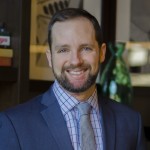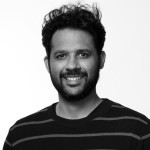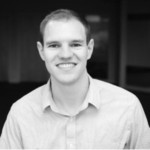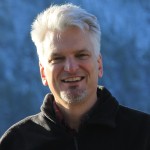Utilities’ energy efficiency programs have a proven record doing what they were originally intended to do: save energy. But in the face of the climate crisis, they must now adapt to prioritize reducing greenhouse gas emissions – and scale up to meet the challenge. By embracing efficient fuel switching and saving energy when the power grid is most carbon-intensive, these programs can change the game for utilities as they strive to meet their climate commitments and the demands of an evolving grid.
Join us to gain insights from a new ACEEE report about the need for a new climate-forward efficiency framework for utilities’ programs—one that balances and aligns the goal of net-zero emissions with other benefits customers and communities seek from energy efficiency. Our speakers will provide perspectives from the legislative, regulatory, and utility sectors, highlighting examples of leading states and utilities that are embracing new models across the United States.
Moderator: Nora Esram, Senior Director for Research, American Council for an Energy-Efficient Economy
Dr. Esram is the Senior Director of Research at the American Council for an Energy-Efficient Economy (ACEEE). She oversees ACEEE’s research agenda in a range of topic areas including buildings, industry, transportation, and behavior. Prior to joining ACEEE, she worked at the Pacific Northwest National Laboratory as a chief engineer and team lead in the Electricity Infrastructure & Buildings Division for ten years and spearheaded a variety of research projects advancing building energy efficiency. She is a licensed architect and holds a Ph.D. in architecture from the University of Illinois, Urbana-Champaign.
Speakers:
Mike Specian, Utilities Manager, American Council for an Energy-Efficient Economy
Mike Specian conducts research that advances the role of energy efficiency in utilities. This includes policies and practices to maximize the potential of efficiency to mitigate greenhouse gas emissions and adapt to a changing climate. His work encourages best practices in efficiency program design and evaluation, and expands the role of energy efficiency in evolving utility business models. Prior to joining ACEEE, Mike worked as an assistant research scientist at the Institute for Data Intensive Engineering and Science, and at the U.S. Department of Energy, where he facilitated behind-the-meter innovations to make buildings more energy efficient, resilient, and flexible for the evolving electricity grid. Mike holds a Ph.D. in physics from Johns Hopkins University.
Mohit Chhabra, Senior Scientist, Climate & Clean Energy Program, NRDC
Mohit Chhabra focuses on affecting policy to accelerate the transition to a sustainable and clean energy future. He provides analysis and strategic guidance to policymakers and other stakeholders at the state, regional, and national levels. Chhabra is currently working on developing cost-efficient pathways to reduce greenhouse gas emissions from California's rapidly transforming electric grid. Chhabra has an extensive background in energy conservation analysis. He is a voting member of the Regional Technical Forum of the Pacific Northwest and is also a part of the Conservation Resources Advisory Committee of the Pacific Northwest. He holds a master's in civil environmental and architectural engineering from the University of Colorado, Boulder and a bachelor's in mechanical engineering from the University of Pune in India. He is based in NRDC's San Francisco office.
Rob Greig, Energy Efficiency Strategy & Planning Manager, Con Edison
Rob Greig leads the strategy and planning team within Con Edison’s Energy Efficiency & Distributed Resource Planning organization. His team is responsible for developing the company’s long-term energy efficiency program strategy, energy efficiency forecasting, benefit cost analyses, and designing regulatory performance incentives in support of the clean energy transition. He previously held roles in energy efficiency analytics and demand response operations. Prior to Con Edison, Rob worked as a consultant helping industrial companies improve facility operations and the economics of major natural resource capital projects. Rob holds a B.S. in Mechanical Engineering from Cornell University and an M.B.A. from New York University’s Stern School of Business. Rob lives in NY’s Hudson Valley with his wife and daughter and enjoys spending time with his family, cooking, and cycling.
Chris Duffrin, President, Center for Energy and Environment
Chris Duffrin is the president of Center for Energy and Environment (CEE), a Minnesota-based nonprofit dedicated to discovering and deploying the most effective energy solutions that strengthen the economy and improve the environment. Chris leads a team of more than 160 staff who work in technology research, building science, program implementation and development, energy retrofit financing, large-building recommissioning, software development, and public policy. With a 40-year history in Minnesota and work that stretches across the U.S., CEE drives policy and program efforts to decarbonize the building sector through scaled energy efficiency and strategic electrification. Prior to leading CEE, Chris directed the nonprofit Neighborhood Energy Connection and was an advocate for low-income energy customers with the Energy CENTS Coalition. Chris is a graduate of Macalester College in St. Paul and resides in Northeast Minneapolis with his wife, two kids and dog.
Trouble registering or joining the event? Please contact Nick Roper.
Webinar transcript here.




